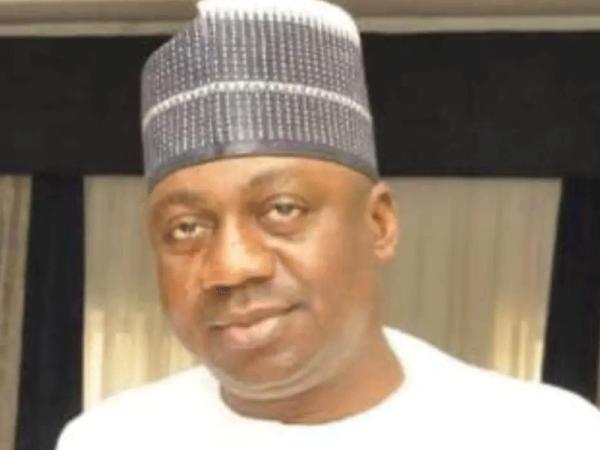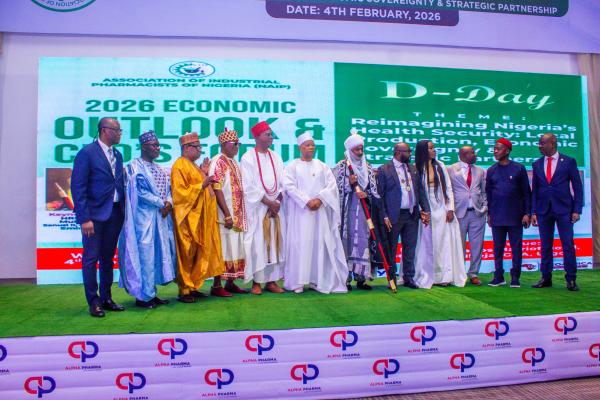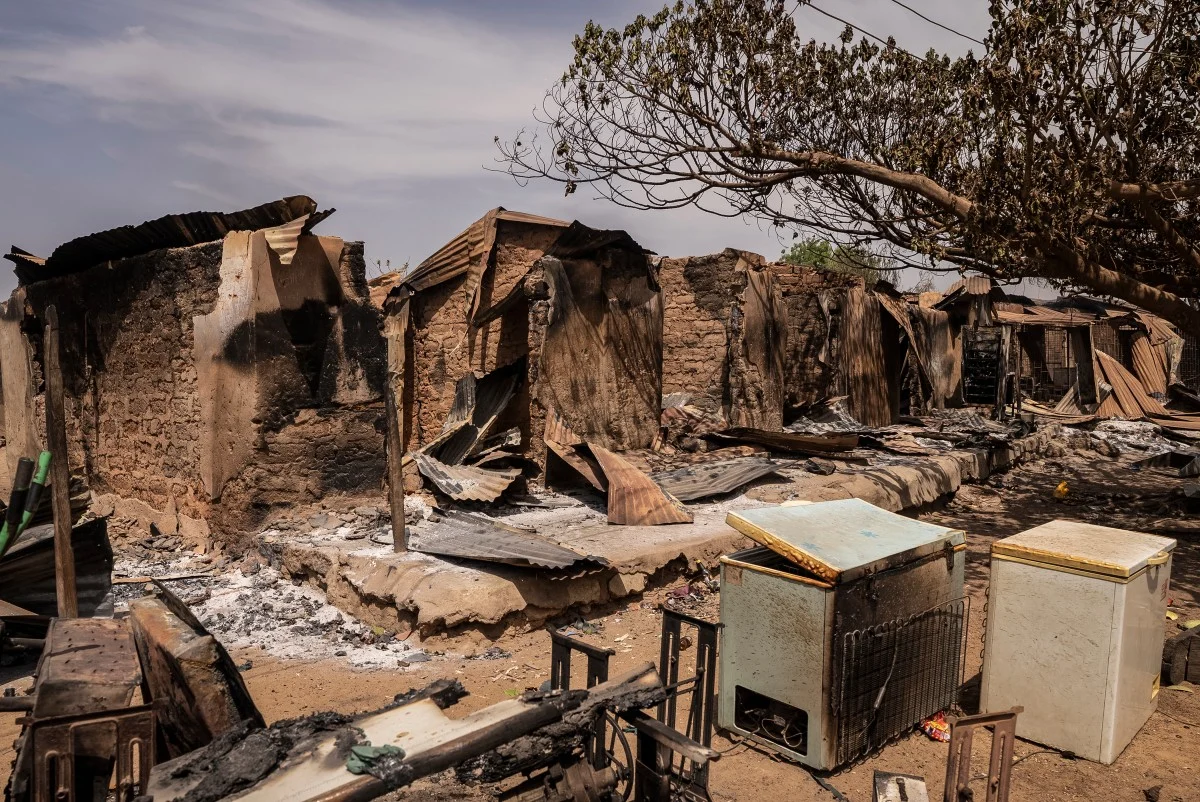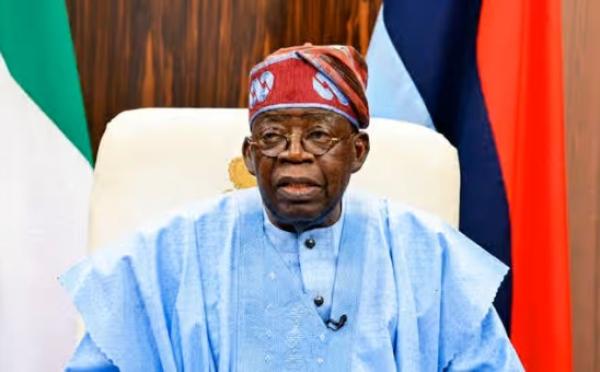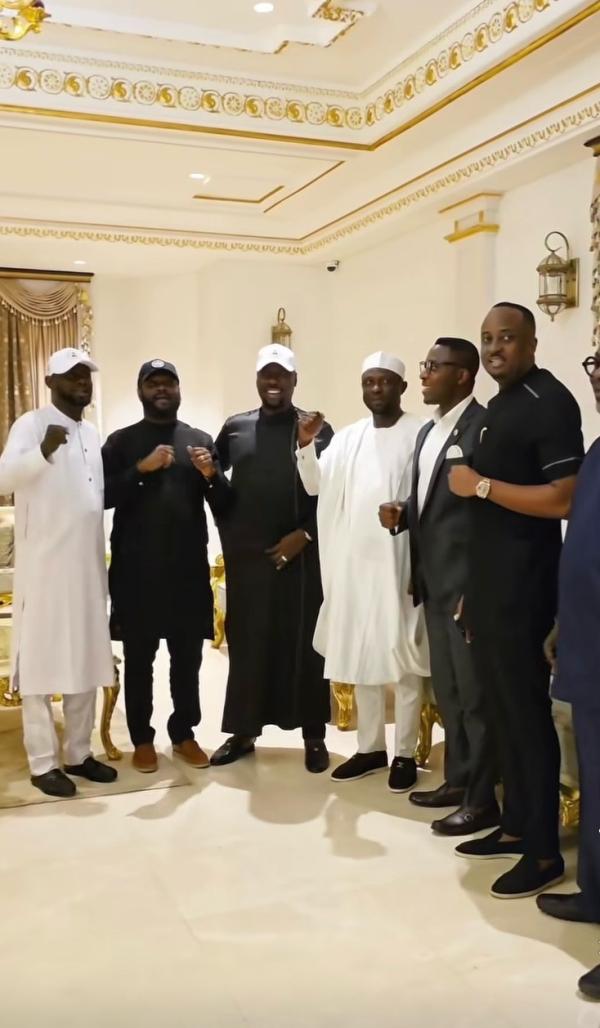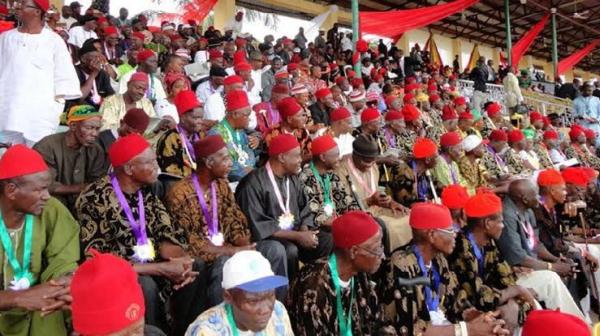
The Ohanaeze Ndigbo sociocultural organization has revealed how to end the sit-at-home in the Southeast.
According to the group, only peace and stability would restore progress to the region.
The apex Igbo sociocultural organization urged Tinubu to dialogue with relevant stakeholders in the Southeast, including Biafra agitators; release Nnamdi Kanu, leader of the Indigenous People of Biafra, IPOB; address the issue of marginalization in the Southeast, and ensure regional development initiatives.
Others include ensuring security and law enforcement of the region, reconciliation and healing, youth empowerment and education, and political representation and participation.
These suggestions were contained in a statement signed by Ohanaeze’s Secretary-General, Okechukwu Isiguzoro.
The statement reads below:
Ohanaeze Ndigbo Worldwide, after her General Assembly meeting with her representatives from seven Igbo-speaking states, including Ikwerre in Rivers and Anioma in Delta States, at the end of the deliberations on Tuesday 18th July 2023, some prevailing suggestions on how President Bola Tinubu, in collaboration with regional bodies like Ohanaeze Ndigbo and Southeast Governors, could address the issue of Sit at Home civil disobedience Orders and violent agitations in Southeast Nigeria.
Here are some possible steps open to President Bola Tinubu to restore peace and stability in the Southeast in view of looming anarchy set up to consume Southeast by one Simon Ekpa’s two weeks Sit at Home order from 31st July to 14th August 2023 in the Southeast :
1. Dialogue and Engagement:
President Tinubu should initiate a dialogue with relevant stakeholders, including Ohanaeze Ndigbo, Southeast Governors, community leaders, and representatives of the Biafra agitating groups such as IPOB, Massob,Bim and others . Open and sincere discussions can help identify the root causes of the grievances, address concerns, and find common ground.
2. Release of Nnamdi Kanu:
It is now considered appropriate and legal, that President Tinubu could explore the possibility of releasing Nnamdi Kanu or granting him bail, depending on the legal proceedings, court orders that quashed the charges against him. This step will help de-escalate tensions and create an atmosphere conducive to dialogue.
3. Addressing Marginalization Concerns in Igboland:
President Tinubu should work with Southeast Governors and other relevant officials to address the perceived marginalization and injustice against the Igbo people. This could involve implementing FG’s policies and programs that promote inclusivity, equitable resource allocation, and socio-economic development in the region.
4. Regional Development Initiatives:
The federal government, in collaboration with Southeast Governors, can launch specific initiatives aimed at boosting infrastructure development like Dams, dredging and establishment of Deep sea port at Akwaete Blue River in Abia and inter state standard gauge railway lines, job creation and overseas training of repented Biafra agitators, and economic opportunities in the Southeast. These initiatives should be designed to address the underlying socio-economic issues that contribute to the grievances of the people.
5. Security and Law Enforcement:
President Tinubu should ensure that security agencies operate with utmost professionalism and respect for human rights in dealing with the civil disobedience and violent agitation. It is crucial to strike a balance between maintaining law and order while avoiding excessive use of force, which could further escalate tensions.
6. Reconciliation and Healing:
President Tinubu, in collaboration with Ohanaeze Ndigbo, Southeast Governors, and other stakeholders, should promote reconciliation efforts aimed at healing the wounds and divisions caused by the conflict. This could involve organizing truth and reconciliation commissions or other platforms for acknowledging past injustices and fostering understanding among different groups.
7. Youth Empowerment and Education:
Investing in education and youth empowerment programs can help address the underlying issues of unemployment, poverty, and social exclusion that contribute to the grievances in the region. Providing opportunities for skills development, entrepreneurship, and quality education can empower the younger generation and foster a sense of hope for the future.
8. Political Representation and Participation:
Promoting greater political representation and participation of the Igbo people at all levels of government especially including Igbos in the FG’s Formation of Government of National Unity, as it will help to address the concerns of Ndigbo. Encouraging inclusive governance and ensuring that the voices of the Southeast are heard in decision-making processes can help build trust and confidence in the political system.
It’s important to note that resolving such complex issues in the Southeast requires a multifaceted approach and sustained efforts over time. The suggestions above are general and should be adapted and tailored to the specific context and dynamics of the situation on the ground to halt the attempts to escalate the violence by Simon Ekpa’s two weeks Sit at Home.













